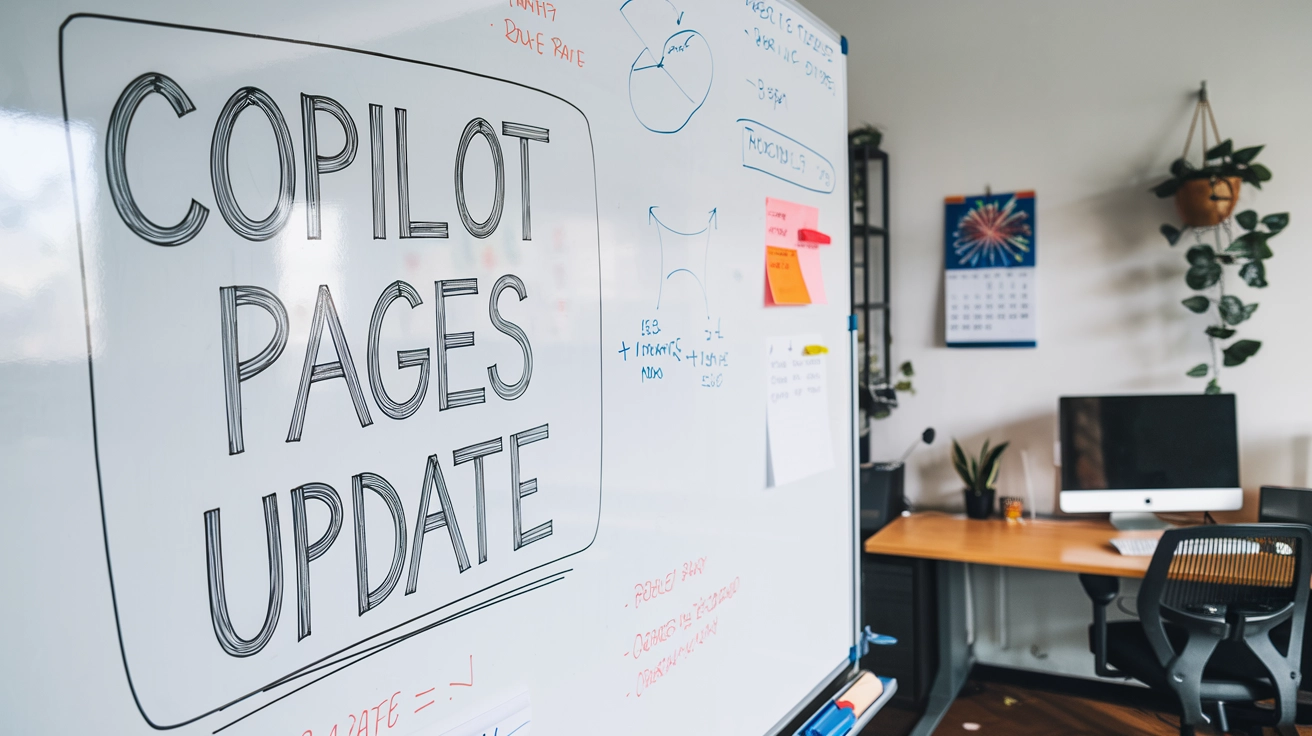Copilot Pages: September 2024 Update for IT Admins

Introduction to Copilot Pages
Microsoft has introduced Copilot Pages, a new feature designed to enhance knowledge work and multiplayer collaboration within the Microsoft 365 environment. These pages serve as a dynamic canvas integrated into Copilot chat, enabling teams to work collaboratively by transforming AI-generated responses into shareable, editable formats.
Overview of Copilot Pages
Starting today, Copilot Pages will be rolled out to users with Microsoft 365 Copilot licenses, followed by general availability for all Microsoft 365 subscribers. These pages allow teams to engage with the Copilot directly and facilitate shared prompts, improving collective outputs and organization of complex content.
Understanding Copilot Pages as .loop Files
Copilot Pages are essentially .loop files, which integrate with SharePoint to enhance functionality. When a user creates a Copilot Page, it becomes part of a new user-owned SharePoint Embedded container. These containers provide a framework for managing the lifecycle and permissions of the files effectively within the organization.
User Access and Administrative Controls
IT admins should note that while Copilot Pages are generally enabled by default in tenants, administrators have control through Loop admin switches to manage these newer page capabilities. They can also utilize Conditional Access tools to regulate who can interact with .loop files based on organizational needs.
How Copilot Pages Function
Each Copilot Page is created as a .loop file, cutting across the learning environment within Microsoft 365. Users will have the flexibility to share these pages with colleagues while adhering to organizational sharing settings, thus maintaining control over data and collaboration.
Management and Compliance Features
Copilot Pages align with established Cloud Policy controls relevant to Loop components. The comprehensive feature set available with Copilot Pages includes GDPR and EUDB compliance, device management via Intune, conditional access, and various audit functionalities, ensuring security and governance remain a priority.
Content Lifecycle and Storage Management
The content created through Copilot Pages is stored within newly designed user-owned SharePoint Embedded containers. This storage system is managed alongside the user account and features preset timelines for soft deletion, allowing IT admins to recover content if needed.
Enhancements Coming in Q4 2024
Upcoming features expected in Q4 2024 will enhance user governance and experience, including improved visibility in the SharePoint Admin Center, allowing admins to oversee various user-owned containers effectively. There will also be capabilities to retain access to containers even when users leave the organization.
Security Measures and Data Control
All data managed through Copilot Pages benefits from built-in security measures such as sensitivity labeling and data loss prevention features. These mechanisms will ensure information integrity and proper handling of sensitive data across organizational networks.
Governance and Compliance Support
The governance framework for user-owned containers is streamlined to improve simplicity over shared resources such as M365 groups. Additionally, future announcements will include programmatic API access to assist IT admins in governing these containers more efficiently.
Conclusion: Empowering IT Admins with Copilot Pages
As Microsoft rolls out Copilot Pages, IT admins play a vital role in managing this innovative feature within their organizations. By leveraging the built-in compliance and control mechanisms, they can facilitate effective collaboration while ensuring adherence to security policies and governance frameworks.